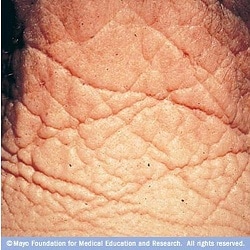If you’d like to take a look at your balance ask us about OmegaCheck blood testing. This looks at different omega 3 and 6 fats in your blood stream and some health relevant ratios of those levels. If you’re curious about your Brain Health and would like to work on it then take a look at our Brain Nutrient 360° Deal this month which includes an OmegaCheck.
- Switch to 100% Grass Fed or Pasture Raised animal products. Factory farmed animal produce contains fewer omega 3 fatty acids and more omega 6s. A great place to start is with your eggs. Look for the words Pastured or Pasture Raised on the packaging to get the omega 3 benefits. The terms Cage Free and Free Range are not going to get you the quality you need.
- Eat fatty fish a few times a week. The stronger tasting, darker fish provide the highest omega 3 content. Here’s my article on eating fish safely.
- Take a high quality fish oil or cod liver oil. Xymogen’s Omega MonoPure is my favorite source. Vegetarians and vegans can use an algae based supplement like this one Xymogen’s DHA from Algae for a source of omega 3s. You’ll need a referral code to purchase so if you’d like to find out if one of these is a fit for you then let me know.
- You can certainly include other non-animal sources of omega 3 fatty acids like chia, flax, hemp and walnuts in your diet but know that they carry fewer health benefits. The body has to convert the ALA (alpha linolenic acid) omega 3 fats in these to the more beneficial DHA (docosahexaenoic acid) and EPA (eicosapentaenoic acid). Conversion rates can be extremely low depending on which type of genetic variations (gene SNPs) you carry.
- Eliminate these high omega 6, highly processed industrial seed oils from your diet: Canola Oil, Corn Oil, Soy Bean Oil, and Vegetable Oil. These are likely rancid anyway having been exposed to high heat and pressure during processing and sitting in clear plastic bottles on the shelf for who knows how long!


 RSS Feed
RSS Feed
